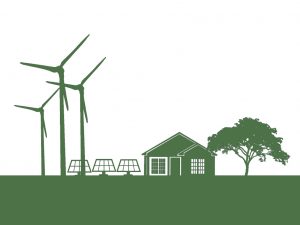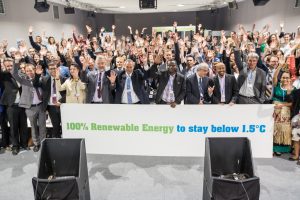The Renewable Energy Association of Nigeria (REAN) should actively take up issues of DRE in Nigeria. Its launch was not for armchair tasks.
It is now four months since the REAN launched, bringing with it very strong prospects. Since its launch however, very little or nothing at all has been heard of it, yet there are new developments and issues in the RE market begging for its attention.
OGN celebrated the launch of REAN for very good reasons. We believed it amongst other developments, marked the formal unification of experts in the country’s RE sector, and that these experts who had diligently worked albeit in silos could now reinvent the conversation on RE capacities as workable alternate power sources.
What we saw in REAN when it launched was a promising new platform that could remedy the damages and backlashes the RE sector had received in Nigeria from past deeds of quacks who took the sector by its jugular and almost suffocated its growth from inception.
We expected a united might that would push away these quacks for good and tactically make changes in the sector through constant push and advocacy for appropriate RE policies from the government.
Our hopes were that through these advocative policies, REAN would begin to get the government to act right and help the country rapidly segue into using electricity from renewable sources to end her huge energy poverty.
We knew and was convinced that if REAN got it right, millions of Nigeria’s population who currently do not have any form of electricity would begin to see immense improvements in their livelihoods through electricity from the sun, wind, and wastes. We really wanted REAN to get up and get going because its itineraries were precise.
Though we accept that it may be too early in the day to call out REAN on the expectations we had of it, we are however constrained to think that REAN may be falling behind in the race to help end energy poverty in Nigeria.
Our growing fears on REAN are real and backed by evidence. For instance, it was to our dismay that REAN failed to in December 2016, make its position known on the reported plan by the government to review import duties and perhaps jack up duties on solar PV components.
Indeed, it was a no-brainer that such rate review if allowed, would affect prices of solar PV technologies brought into the country by RE operators and subsequently project costs and bottom-line of operators and members of REAN, but REAN from our records failed to make any advocacy stance against the implementation while other items got duty waivers or cuts.
One would have expected REAN to as part of its advocacy task, make efforts to lobby against the rate review through relevant agencies and persons, on the valid excuse that it would harm the prospects of the RE market and slowdown attempts to end energy poverty in the country.
Another instance where REAN seemingly balked on its responsibility was the government’s recent launch of another community based solar power scheme without competitive bid processes.
Considering REAN’s posture in Nigeria’s RE market, we will not hesitate to remind it that it has a burden of trust to fulfil, one that demands it advises, condemns, and points out instances of violation of standard practices in solar projects procurements within the country.
Finally, we think that a docile REAN would do no good to the emerging RE sector in Nigeria, and thus urge its members to wake up if they are numb to their responsibilities.






1 thought on “A docile REAN could upset growth of Nigeria’s RE market”
REAN is experiencing teething problems that are not unexpected for an industry association in a sector with very poor standards. REAN is positioning itself to overcome these challenges. Expect a major announcement very soon.
Comments are closed.